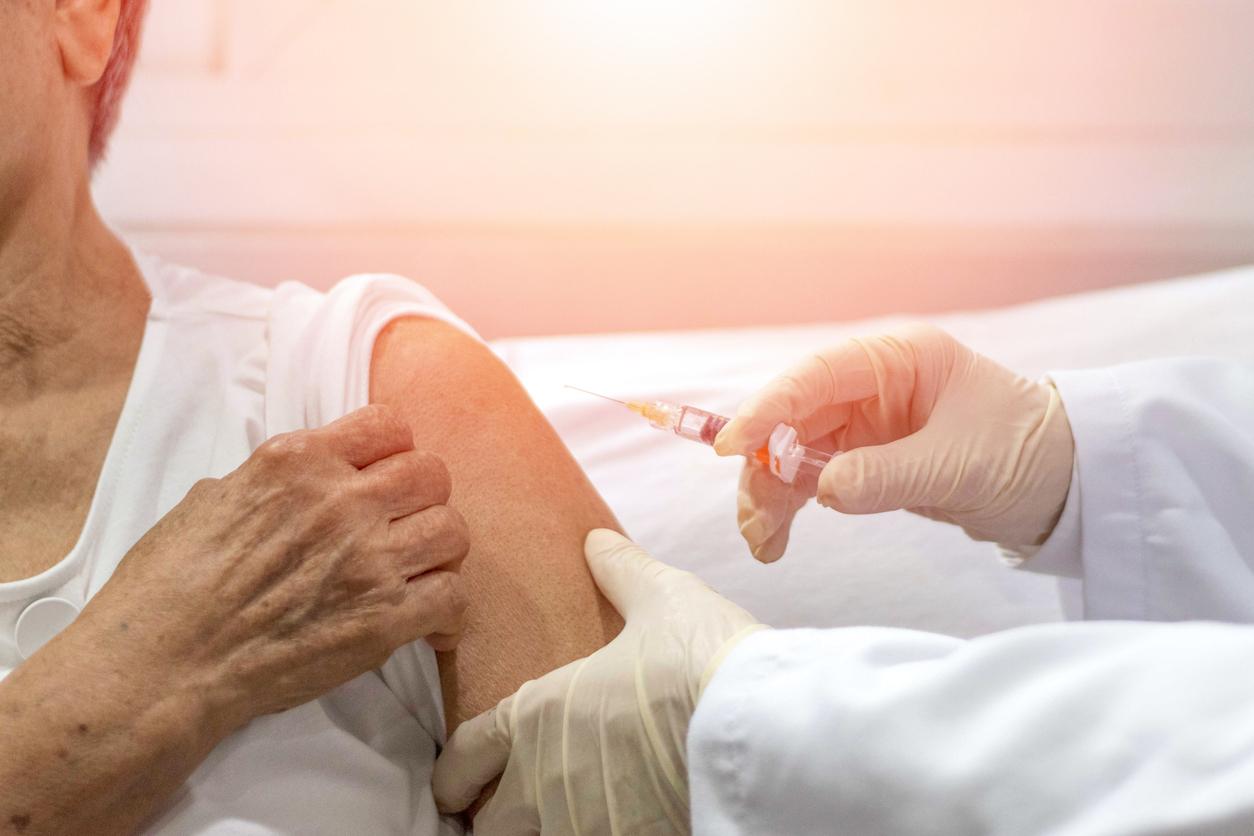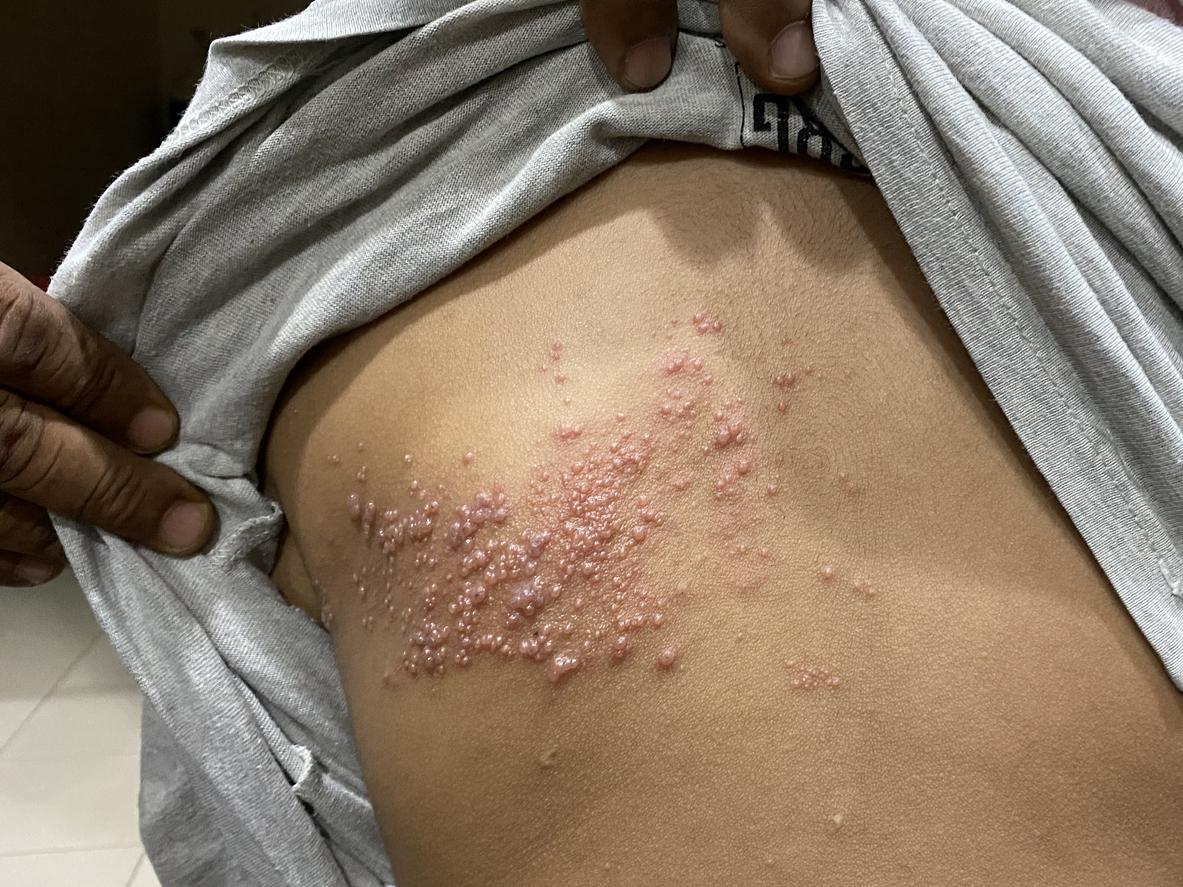A vaccine reimbursed for 65-74 year olds
Since last March, the vaccine against shingles has therefore entered the adult vaccination schedule.
This vaccine is recommended (and reimbursed by the Primary Health Insurance Fund) for adults aged 65 to 74 years old. In addition, for people aged 75 to 79, coverage and reimbursement are provided until February 28, 2017, the date of publication of the next vaccination schedule.
The Zostavax® vaccine is composed of an attenuated viral strain of the varicella zoster virus (VZV) which stimulates the immune system to specifically fight against this virus. It is administered in a single dose (there is no reminder) and the vaccine can be given at the same time as the seasonal flu vaccine.
What the shingles vaccine promises
Immunosenescence is defined as the decline of the immune system and its function in relation to age. It results in a lower resistance to attacks and finally an increased susceptibility of the elderly to infectious diseases.
A study conducted on the American population shows that, compared to an unvaccinated person, the vaccine would reduce:
- 51% risk of developing shingles
- 73% the most severe forms of shingles
- 67% the risk of postherpetic pain.
The laboratory specifies that the vaccine efficacy persists for at least 8 years for the prevention of shingles and 10 years for the reduction in the severity of post-herpetic pain.
Contraindications of Zostavax®
The vaccine is contraindicated in case of:
- Primary or acquired immunodeficiency: leukemias acute and chronic, lymphomasdisorders of the bone marrow or the lymphatic system, HIV/AIDScellular immunity deficits.
- immunosuppressive therapy (including high doses of corticosteroids).
- Tuberculosis active unprocessed.
Who is affected by shingles?
Any adult who has ever had chickenpox is likely to have one day a shingles because the latter is due to the reactivation of the virus (known as VZV for varicella and shingles virus) which has remained latent in the body.
It is estimated that one in four French people will develop shingles during their lifetime, and that one in two French people aged 80 or over has already developed shingles.
After recovery from chickenpox, VZV remains present in a latent state in the nerve ganglia. When reactivated, the virus multiplies there, travels along nerve fibers to the skin (or mucous membranes, depending on the nerve affected) where it causes pain and then a painful blistering rash.
What are the risk factors?
Reactivation of the virus is mainly favored by age and the decline in cellular immunity associated with aging. The other risk factors are acquired immunosuppression (HIV, immunosuppressive treatment, etc.)
The occurrence of shingles and especially its severity are unpredictable. Otherwise, disease treatment is complex and cannot prevent all so-called “post-herpetic” pain (the most serious complications of shingles). This is why a vaccine (the only one available for the moment) has been developed in order to maintain the VZV in a latent state in the body.
Pain that can last for months
According to data from the Sentinelles network, approximately 300,000 people are affected by shingles each year in France. At the time of the eruption and in the following days, pain in the affected area is present in 95% of cases. If there are no complications, the healing of the rash is complete in 3 or 4 weeks. But the pain can persist beyond the eruption and last for more than 3 months, or even become chronic.
About one in five shingles patients aged 50 and over develop postherpetic neuralgia (i.e. pains persisting for more than 3 months). This rate can reach 30% in patients aged 70 and over.
“Shingles is not a benign disease of short duration. In the elderly, it is responsible for chronic pain that is sometimes severe and stubborn. It can generate depression and social isolation, contributing to further weakening the elderly and leading them towards a sliding syndrome” explains Pr Alain Franco, geriatrician in the Internal Medicine department of the Nice University Hospital.
Pregnancy is also one of the contraindications for Zostavax, but it is rare, not to say exceptional, to get pregnant between the ages of 65 and 74!
Read also :
New for the pain of shingles
How to relieve your shingles?


















